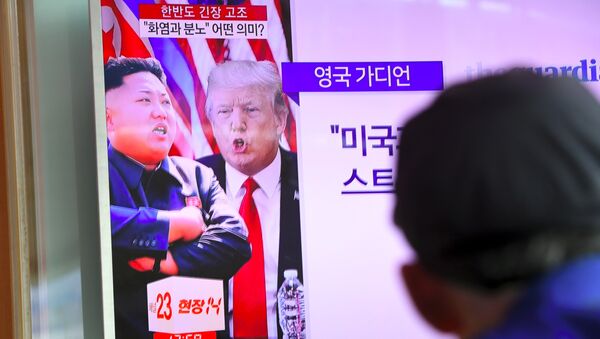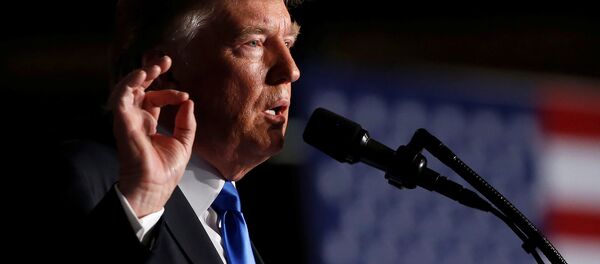"The US wants to prevent the further ‘nuclearization' of North Korea, but it is not in its interests to fully resolve the issue," the expert said.
Terekhov noted that the United States needs some reason to justify its presence in South Korea, which is why Washington is interested in maintaining tensions in the region.
"The United States needs a certain pretext to maintain its presence in South Korea. If the Korean issue… is suddenly resolved, then the question will arise: What exactly are American troops doing in South Korea?" the analyst said. "They [the US] need this dosed tension. This is what the American game is all about," he continued.
On Sunday, North Korea said it conducted its most powerful nuclear test of an advanced hydrogen bomb for a long-range missile.
Commenting on the DPRK's statement, US President Donald Trump said Pyongyang's actions are "hostile and dangerous" and emphasized that the "talk of appeasement" would not work. He also reaffirmed the US readiness to protect the US and its allies by "using the full range of diplomatic, conventional and nuclear capabilities at our disposal."
Moreover, US Secretary of Defense James Mattis told reporters that any threats to the United States or its allies would be met with a massive, "effective and overwhelming" military response. Mattis also said that Trump had been briefed on various military options available to the United States.
"The statements sounded quite tough, but neither Mattis nor Trump said anything new. They have been saying all this over the last six months, and their statement actually means the following: The US Armed Forces are ready for action in case of an acute need, but that is the way it should be, otherwise, why are hundreds of billions of dollars spent each year on their funding? But, of course, the situation is dangerous… any incident can bring it out of control," the analyst concluded.
"We're going to see what happens… that's not a first choice, but we will see what happens," Trump said.



